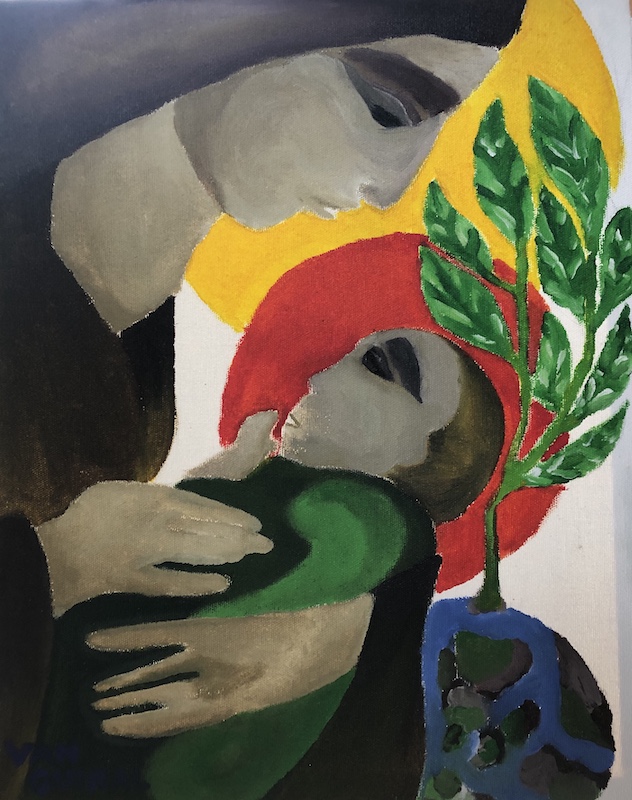
CAGAYAN DE ORO CITY (MindaNews / 24 December) — Christmas is a special time to remember the drama of the birth of Jesus Christ. The Bible tells us that, in a dream, the Angel Gabriel told Joseph that Mary “will bear a son and you are to name him Jesus, because he will save his people from their sins … and ‘they shall name him Emmanuel’, which means ‘God is with us’” (Mat. 1:21, 23). This biblical text deserves a deeper understanding in light of the emerging ecological perspective of incarnation and salvation.
The Ecological Meaning of Incarnation
Many theologians today have advanced the notion of “deep incarnation” to understand the ecological meaning of this Christological truth. Danish theologian Niels Henrik Gregersen, for instance, affirms that “before the advent of Christ in the form a human being, Christ is present as the embodied Logos in the world of creation for all other creatures.”[1] In the incarnation, according to Richard Bauckham, “God is not present merely with or in one or more of his creatures, but as the particular human Jesus of Nazareth.”[2]
To highlight the ecological meaning of Incarnation, the distinguished American theologian Elizabeth A. Johnson explains that, in Jesus Christ, “the Word of God entered into solidarity not only with all humanity but also with the whole biophysical world of which human beings are a part and on which their existence depends.”[3] Subsequently, the perspective of God-with-us in Christ must be understood as “God-with-all-living-things.”

Significantly, the magisterium creatively appropriates the ecological meaning of Incarnation. John Paul II taught that “the incarnation of God the Son signifies the taking up into unity with God not only of human nature, but in this human nature, in a sense, of everything that is ‘flesh’: the whole of humanity, the entire visible and material world” (Dominus et Vivificantem, 50).
In Laudato Si’ (LS), Pope Francis also affirms that “Christ has taken unto himself this material world and now, risen, is intimately present to each being” (LS 221). He teaches that Jesus Christ “became part of this earth” and he is “alive in every creature in [his] risen glory” (LS 246). Both papal teachings should deepen our ecological understanding of Christmas.
Overcoming the Anthropocentric View of Salvation
The foregoing ecological meaning of Incarnation challenges us to broaden the prevailing anthropocentric view of salvation which maintains that the Word became flesh “for us men and for our salvation.” Salvation from sins is not the only reason for Incarnation. Even if human beings have not committed sins, the Son of God would still be incarnated because salvation is not just about forgiving our sins but living as God’s children.
Moreover, St. Paul teaches that salvation has always been in the plan of God who “chose us in him, before the foundation of the world” and “destined us for adoption to himself through Jesus Christ” (Eph 1:4-5). As finite creatures, we absolutely need God’s elevating grace to become children of God. We need the mediation of Jesus Christ who is truly human and truly divine.
Furthermore, there is a need to emphasize that salvation is intended not just for human beings but for all creatures. As John’s Gospel proclaims, “For God so loved the world that he gave his only begotten son” (Jn 3:16). The world absolutely needs salvation because, as St. Paul teaches, it is affected by human sins (cf. Rom 8:22-23). God will save the world them by “making all things new” (Rev 21:5) which will be fully realized when God will “be all in all” (1Cor 15:28).
[MindaViews is the opinion section of MindaNews. Reynaldo D. Raluto is a Roman Catholic priest of the Diocese of Malaybalay. He is the Academic Dean of St. John Vianney Theological Seminary in Cagayan de Oro where he also teaches fundamental/systematic theology and Catholic social teaching. He is the author of Poverty and Ecology at the Crossroads: An Ecological Theology of Liberation in the Philippine Context (Quezon City: Ateneo de Manila University Press, 2015). His ecological advocacy includes planting/growing Philippine native trees, mountain climbing, and defending the rights of Indigenous Peoples.]
[1] Niels Henrik Gregersen, “Deep Incarnation: Opportunities and Challenges,” in Incarnation: On the Scope and Depth of Christology, edited by Niels Henrik Gregersen (Minneapolis: Fortress Press, 2015), 361-379, on p. 365.
[2] Richard Bauckham, “The Incarnation and the Cosmic Christ,” in Incarnation: On the Scope and Depth of Christology, 25-57, on p. 28.
[3] Elizabeth A. Johnson, “Jesus and the Cosmos: Soundings in Deep Christology,” in Incarnation: On the Scope and Depth of Christology, 132-156, on p. 140.







